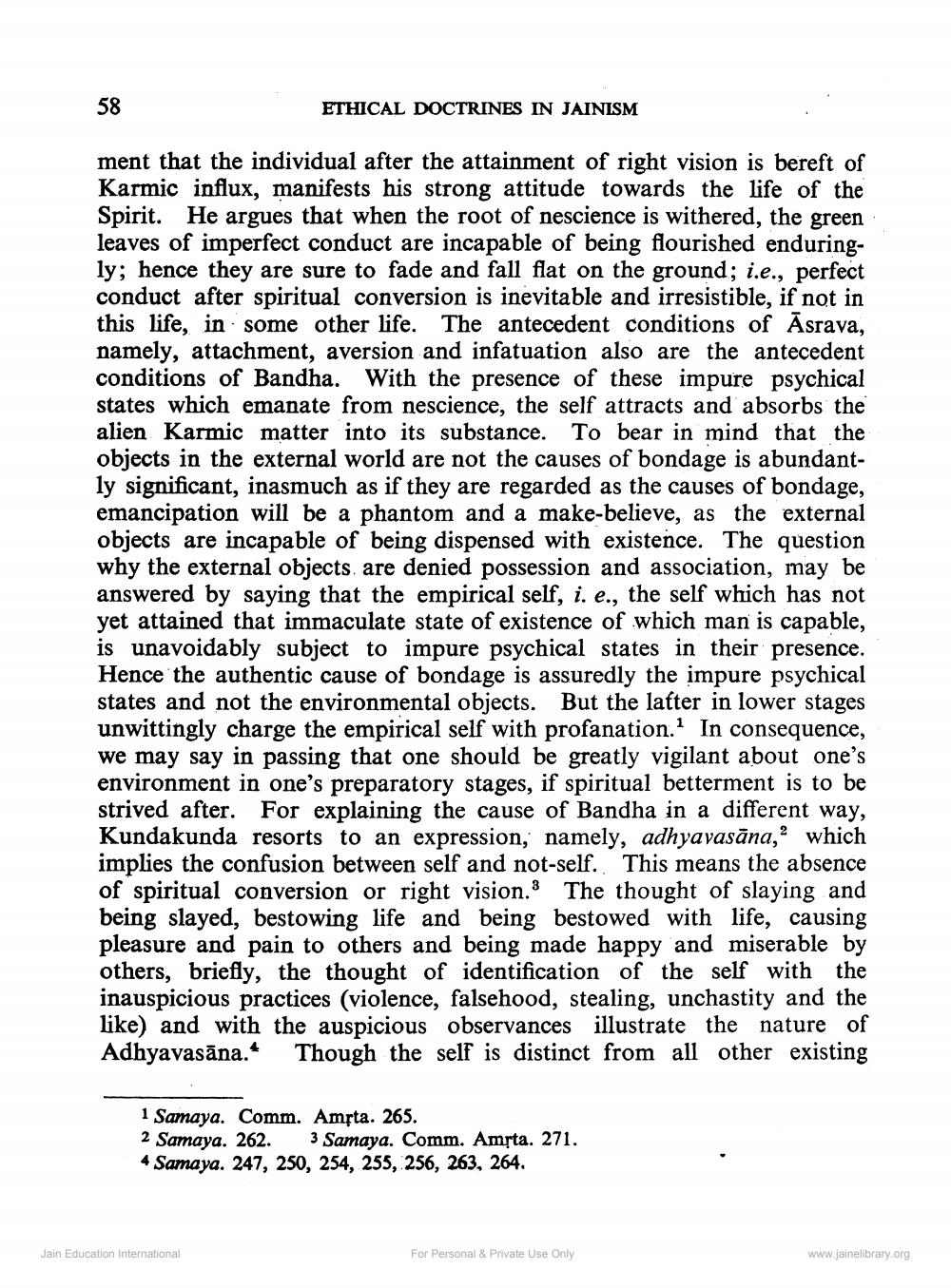________________
58
ETHICAL DOCTRINES IN JAINISM
ment that the individual after the attainment of right vision is bereft of Karmic influx, manifests his strong attitude towards the life of the Spirit. He argues that when the root of nescience is withered, the green leaves of imperfect conduct are incapable of being flourished enduringly; hence they are sure to fade and fall flat on the ground; i.e., perfect conduct after spiritual conversion is inevitable and irresistible, if not in this life, in some other life. The antecedent conditions of Asrava, namely, attachment, aversion and infatuation also are the antecedent conditions of Bandha. With the presence of these impure psychical states which emanate from nescience, the self attracts and absorbs the alien Karmic matter into its substance. To bear in mind that the objects in the external world are not the causes of bondage is abundantly significant, inasmuch as if they are regarded as the causes of bondage, emancipation will be a phantom and a make-believe, as the external objects are incapable of being dispensed with existence. The question why the external objects are denied possession and association, may be answered by saying that the empirical self, i. e., the self which has not yet attained that immaculate state of existence of which man is capable, is unavoidably subject to impure psychical states in their presence. Hence the authentic cause of bondage is assuredly the impure psychical states and not the environmental objects. But the latter in lower stages unwittingly charge the empirical self with profanation. In consequence, we may say in passing that one should be greatly vigilant about one's environment in one's preparatory stages, if spiritual betterment is to be strived after. For explaining the cause of Bandha in a different way, Kundakunda resorts to an expression, namely, adhyavasāna, which implies the confusion between self and not-self. This means the absence of spiritual conversion or right vision. The thought of slaying and being slayed, bestowing life and being bestowed with life, causing pleasure and pain to others and being made happy and miserable by others, briefly, the thought of identification of the self with the inauspicious practices (violence, falsehood, stealing, unchastity and the like) and with the auspicious observances illustrate the nature of Adhyavasāna. Though the self is distinct from all other existing
1 Samaya. Comm. Amfta. 265. 2 Samaya. 262. 3 Samaya. Comm. Amsta. 271. 4 Samaya. 247, 250, 254, 255, 256, 263, 264.
Jain Education International
For Personal & Private Use Only
www.jainelibrary.org




